Can Girls' Image Be Different in Games? (And Why It Can't)
Hyper-sexualized women are as much part of gaming as the ongoing conversation about diversity and representation in the industry. There surely is friction here, and I, for one, can't see it really changing.
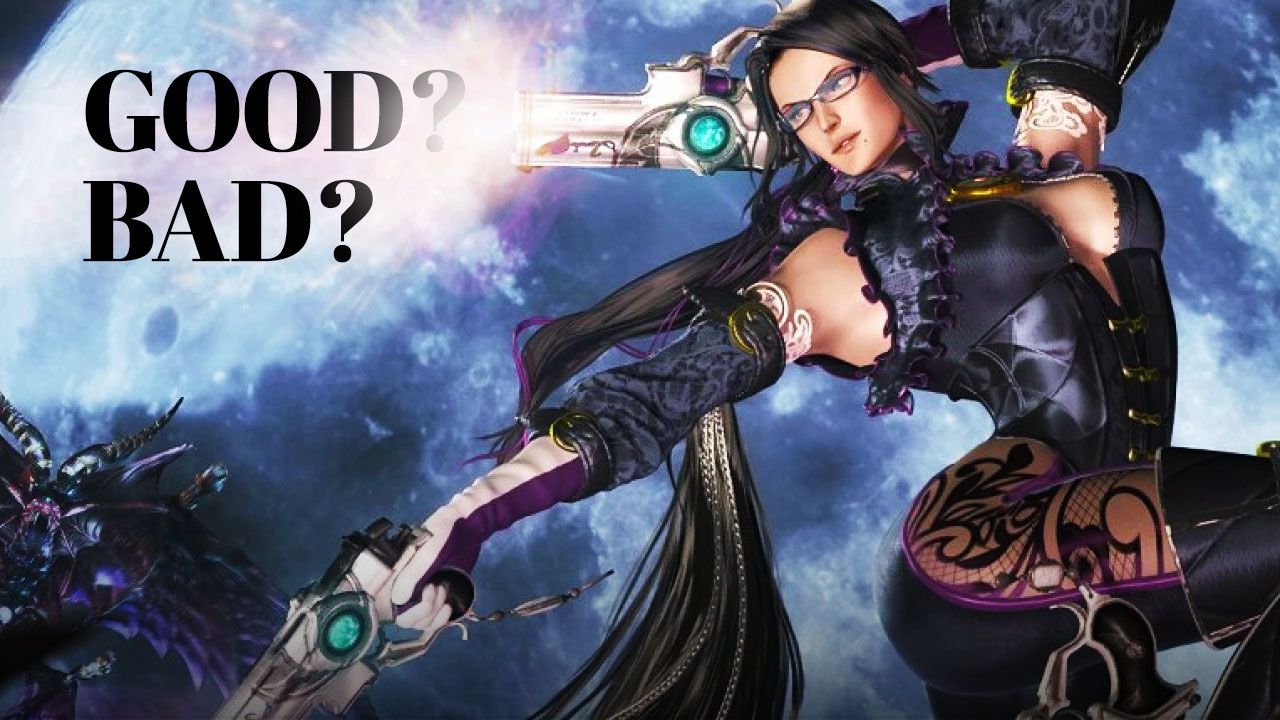
As a fan of Japanese games, I am constantly surrounded by female characters who often embody various fantasies. School uniforms, older, charismatic ladies, skimpy outfits and large breasts... In fact, everyone, regardless of taste, will find a heroine there, who can provide some straightforward excitement. I have the impression that by being exposed to such images of women, I've become somewhat indifferent over time – as long as I didn't pay attention, I didn't notice anything harmful about it – I have thus became another victim to the ubiquitous sexualization and just got used to it.
However, if you actually think about it, this sucks big time. Sure, as something that affects our senses it's aesthetically pleasing and you could argue that it's just fictional characters, so there's no real problem. But what does it mean if such imagery of women dominates a medium such as video games? It affects the player's perception, even if mostly at the subconscious level. In my case, the result has been a certain numbness, indifference, but it could just as well result in objectification of women or reinforcing false expectations. Because if all the strong heroines wear skimpy outfits and their bodies are akin to those of pro athletes, it must mean that these are the most valued female attributes, right?
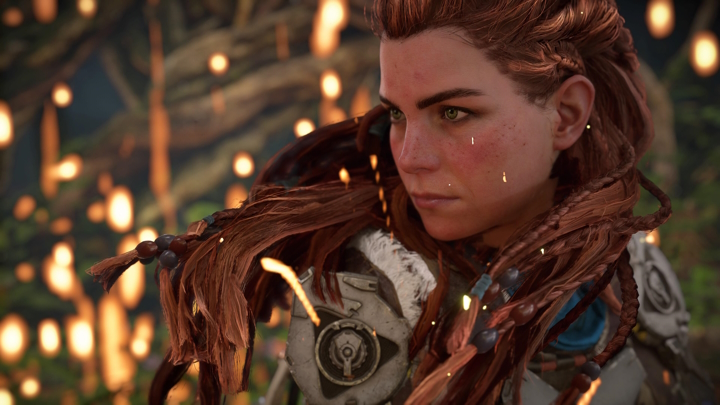
Of course, these quibbles might be exaggerated and a little far-fetched, but there is also a grain of truth in them – most of the heroines are perfect beauties (with overemphasized attributes), who, even when fighting in dramatic conditions for survival, have shaved legs and armpits. Certainly, everyone remembers the immense surprise that overcame internet users when, on the photo-realistic cover of Horizon Forbidden West, they could notice small hairs on the face of Aloy, the main character, which are, of course, completely natural. Aloy, without makeup, wearing relatively modest clothing and with some hair on her cheeks, is one of the characters who takes up the fight against windmills, attempting to represent female heroes without sexualization. But she's just part of the minority, sidelined by beautiful ladies with narrow waists and curvy hips. The former fight valiantly, trying to introduce more realism, and day after day, they follow in the footsteps of Sisyphus. And then she steps in, all in black.
The epitome of all fantasies
We're talking, of course, about Bayonetta, and this one, like many other female characters with explicit references to specific sexual preferences, originated in Japan. A strong, tall witch in a black, tight latex suit excels not only in battle, but also in flirting. Her dominating and charismatic presence enthralls everyone around her. Confident and unapologetic, she never shies away from expressing her sexuality with poise. Interestingly, as a visual response to the popular soft spot of audiences of both sexes for dominating women in the bedroom, Bayonetta was reportedly originally designed using a very different premise. According to the artist responsible for its creation, the witch was simply meant to give the impression of being strong at first glance, in addition to using elements commonly associated with witches – such as black clothing.
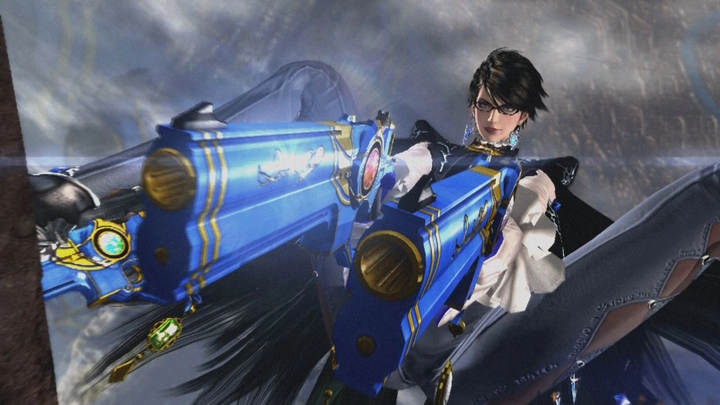
We don't know how much truth there is in this, of course; nor is it particularly important, since it's the end result that generates the majority of players' impressions. Bayonetta's phenomenon, however, is not solely attributable to her physical attractiveness and explicitly sexualized image, as in her case, this, exceptionally, does not evoke criticism. Meanwhile, when it comes to most female characters, whose most important trait is sex appeal, so much focus on looks alone is not justified.
Sometimes, the story of a given heroine doesn't add up with her physical appearance, as everyone in the game's universe dresses completely differently from her, or the character's style clearly clashes with her personality (probably everyone is familiar with the popular image of a shy, insecure girl who, for some reason, only wears very revealing clothes). In other words, such sexualization takes place solely for the purpose of sexualization, and does not contribute anything new to the game. It is difficult to justify it with anything other than the desire to attract as much attention as possible with the appealing image of the heroine – just like in those ads, where the main selling point of soda are breasts.
Bayonetta is a unique case in a way, because her sexuality is clear and significant in every aspect of her adventures. What's more, her sex appeal isn't something that characters around her attribute to her – as happens to most female protagonists, who probably wouldn't want to be perceived mainly through the prism of their bodies at all. From a woman's perspective, unwanted attention is one of the least pleasant things that can happen to you. So Bayonetta is not sexualized; she proudly displays her sexuality. No one objectifies her, no one sexualizes her – it is she herself who openly shows her sex appeal to the world. This is the main reason why the character of the popular witch has not faced much criticism for her somewhat objectifying image, whereas the criticism was exceptionally loud in the case of many other female protagonists. On the contrary, Bayonetta is considered a feminist voice in the still patriarchal video game industry.
After all, female sexuality as such is beautiful; what sucks is sexism and objectification of women. Bayonetta, on the other hand, doesn't mind, showing that it's she, as a woman, who decides how to present her sexuality. Of course, this doesn't change the fact that ladies of a different persona, who are not interested in showing their bodies off, are constantly exposed to uninvited and unflattering comments about their bodies. Instead, it shows, in a sense, a utopian reality in which women, and only women, decide their sexuality, and the seemingly over-sexualized and object-like figure of Bayonetta has become a symbol of this.
Until
I don't think anyone would have ever questioned her status as a strong, self-determining woman whom no one would even dare to offer an uninvited comment if not for last year's release of the third installment of the series. Bayonetta 3 was not a bad game – visually, gameplay-wise or spectacle-wise in general, it didn't disappoint me one bit. However, it's hard to resist the impression that in par three, we were dealing with a completely different Bayonetta than in the previous two installments. She suddenly became dependent on men, constantly needing help and completely forgetting her previous romantic interest.
Bayonetta seemed a bisexual heroine up until that point (and an important representation of sexual minorities in video games), and her relationship to Jeanne was quite obvious. Unfortunately, when Bayonetta developed her romantic relationship with Luca in part three (whom she had previously treated rather indulgently), she outright suggests that the feeling between them had been brewing for a long time, as if she had nothing in common with Jeanne anymore? Bayonetta, as a character who's quite human and multidimensional, has of course every right to change and evolve, but this particular change didn't strike me as being in-line with the character I knew. It's a bit like the creators wanted to reinforce the belief that bisexuality in women is just "experimentation" and that they eventually forget it. Did anyone try asking if this belief has anything to do with reality? That probably happened in order to make the game more consistent with the general change that's taking place in Bayonetta, and it is by no means a change for the better.
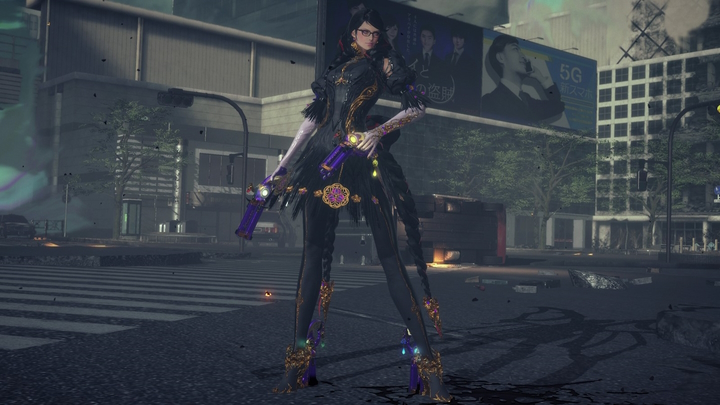
As a fictional heroine, although also quite human, Bayonetta is the embodiment of some ideas, beliefs, perceptions – it's inevitable, that's just how characters are constructed. Perhaps that's why in her case, that change is more glaring than if it involved some controversial celebrity we read about on a gossip website. Deciding on her sexuality and herself, Bayonetta, who never needs anyone's help, is brave, outspoken and breaks all hurtful stereotypes about femininity while kicking others' asses in an objectively great game. Sorry, my mistake – not "is," but "was," as Bayonetta 3 shows the well-known heroine from a completely different perspective.
"Of course," she "outgrew" these bisexual fantasies and has found her place at the side of a male. What's more, she suddenly sees the man she's looked down upon for the previous two games as an object of affection, who, on top of that, keeps rescuing her from trouble, as she's unexpectedly lost the ability to handle everything on her own. The more Luca's plot is developed, the less Bayonetta there is in Bayonetta, as she goes from being a badass icon of feminine power to someone who needs a strong guy by her side to succeed. That's not the Bayonetta we know and love, and that's not the Bayonetta that has earned recognition as a strong female representation in video games. Unfortunately, in the third part, instead of grabbing a gun, she takes an enormous eraser with which she meticulously cancels all of her positive, progressive messages, pretending they never existed.
Rapid transformations? Hardly!
Over the years, Bayonetta has consistently demonstrated that women, both in games and beyond, should be the ones making decisions about themselves. She valued independence and strength, which – even though they had little right to exist in the real world – could serve as a certain road sign. In the worst case scenario, if not a road sign, then certainly a strong poke in the nose for those who ever thought that sending a woman a picture of one's private parts without her explicit consent was a good idea. For me, as a woman, although it may not have much significance on a global scale, this message was very important. If it ever contributed to someone refraining from making an inappropriate comment towards a girl in their environment, I see tremendous value in it. I saw just as much importance in representing bisexual individuals in Bayonetta, as they were neither overlooked (as, in most games, there's nothing in-between hetero- and homosexuality), nor were they fetishized. Well, it was fun, but it's over now.
After Bayonetta 3, I felt a bit like someone had played a trick on me: "You silly girl! You got fooled!" I was genuinely convinced that the representation of women in video games could move away from objectifying and sexualization, and finally showcase the strength of female characters from a feminine perspective, or perhaps eventually, in a few years, actually look outside the window and embrace realism. Meanwhile, Bayonetta, one of the most significant female characters whose role in the game is not limited to being an object of desire, laughed in my face. Throughout the years, she embodied female self-confidence, sexuality, and independence, only to ultimately be reduced to... what most female heroines are.
Even Bayonetta, the one who broke stereotypes and showed that female game characters can make their own decisions and smile with pity when thinking about players fantasizing about them, denies what she herself brought to the industry. It's hard for me to believe that anyone else will be able to make a change in the near future. Somewhat indifferent, a bit bitter, I think I no longer have the power to mourn her fate, and all that remains is for me to come to terms with reality.
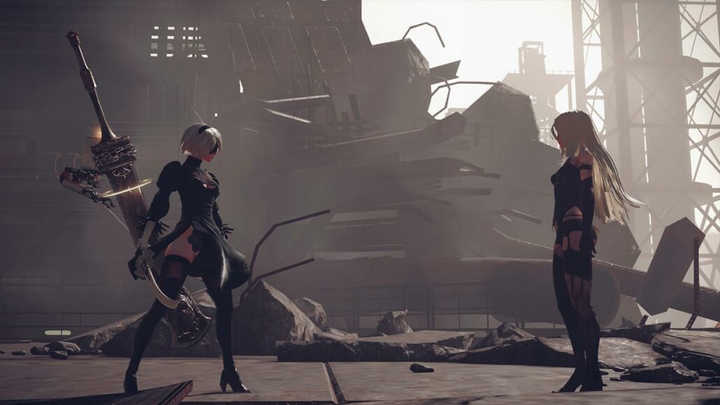
There's hope
Looking at it more realistically, without moaning Bayonetta's fate or dreaming of a greater variety of female characters, I am also aware that hope dies last18×16 svg. However, I don't think change will come soon. It took Bayonetta eight years (the time that has passed between the second and third parts of the game) to abandon what it had developed in terms of portraying femininity, and it is well-known that it is easier to destroy something than to build it. Let's also keep in mind that a significant amount of time has passed since the release of the sequel in 2014, and regrettably, this does not imply that Bayonetta revolutionized the industry before the launch of its controversial third installment.
She contributed to the popularization of female characters who independently decide on their own sexuality, and she deserves praise for it. However, and unfortunately, the subversiveness of her sensuality, which anticipated the impressions and instincts of the audience, was not broadly understood. Sexy heroines in school uniforms, beautiful women with perfect figures clad in "lingerie armors," or cute neighborhood girls dazzling with model-like beauty – they're all there, and they're alright. This only demonstrates that there's a need for more women like Bayonetta and just as many like Aloy in order to make significant change on a larger scale. And most importantly, there's a need to stick to progressive decisions instead of retreating with a tucked tail!
As long as we desire to look at them, women in games will exude sex appeal and serve as fodder for players' fantasies. Putting ideals and higher goals aside in favor of harsh realism, I'll say this: we'll want this for many years to come, simply because that's aesthetically pleasing. Appealing, intriguing, and above all, quite different from real women, although this can obviously be detrimental when reality becomes intertwined with fiction to such extent.
At the same time, the exaggerated and unrealistic nature of fictional works is what makes them appealing to us as gamers. Ultimately, fiction exists to provide entertainment through experiences that we do not encounter in reality, which includes, among other things, fantastical worlds, criminal mysteries, "epic" adventures, as well as our more primal fantasies. The desire to watch women who could appear in our imagination is entirely natural, although it does not necessarily contradict the pursuit of representing these women simply as human beings, rather than as objects. This is what Bayonetta embodied – until.
Despite this, female protagonists who break away from this pattern continue to appear in the gaming industry, trying to succeed on a smaller or larger scale, and I genuinely support them. Perhaps someone will become as recognizable and influential as Bayonetta before her "transformation" and will once again show gamers that a character can be both attractive and not sexualized, not driven by carnal demands. Up to this point, without much guilt, I've remained in virtual worlds surrounded by sexy heroines with large breasts – after all, it's not like I have many meaningful alternatives. Perhaps, somewhere deep down, I've simply come to terms with the fact that "that's just how it is in games?" It is a highly likely scenario, and I have great hopes that there are still many creators who, unlike me, haven't become indifferent, because without them, we would collectively take a step back – just like the recent Bayonetta.
